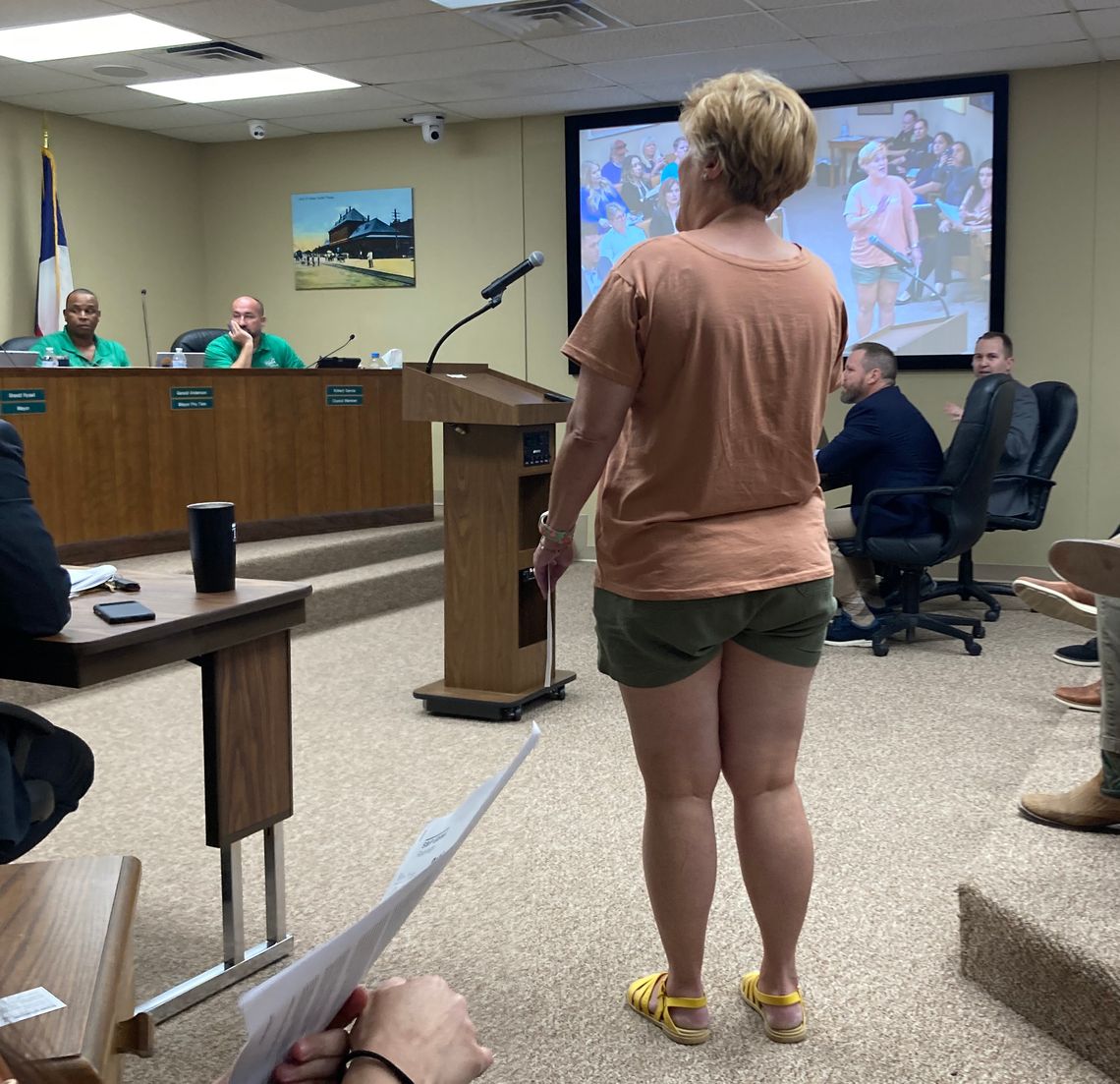Tempers flared in the council chambers Thursday night after city leaders unexpectedly voted to give themselves a much heftier raise than a citizens compensation committee had just recommended.
At the July 27 meeting, the Taylor City Council voted 3-2 to increase their own stipends from $25 to $1,000 per month and to $1,500 per month for the mayor’s position, effective Oct. 1, despite the committee’s recommending at the meeting a much lower raise to $250 per month for all elected officials, including the mayor, taking effect incrementally over several election cycles.
“I think this is atrocious,” said At-large Councilman Dwayne Ariola, whose initial motion to accept the committee’s recommendation died for lack of a second. “This was brought up in October. And while it’s legal, it’s not the right decision. In November, everyone who showed up agreed on a compensation increase, but that we should let the citizens decide … We picked a committee. The committee decided what they decided.”
Last November, after a public outcry, the council voted 3-2 against a proposal to increase their compensation to $1,200 and to $1,500 per month for the mayor, and they appointed a five-member ad-hoc compensation committee to study the issue, which met twice over the summer.
Chair Jose Orta, who was appointed by Mayor Brandt Rydell, said the committee examined many factors in making its recommendations, including council compensation in other area cities, as well as citizen feedback through surveys, and other data provided by Deputy City Manager Jeff Jenkins.
“You only gave us three meetings, and we did our best … we all left that first meeting in agreement that some sort of compensation was needed, and the issue was what was going to be the amount,” Orta said. “We came up with what we considered a really good compromise. We all don’t agree, but it was a compromise from the committee … There was a huge discussion and concern that you all ran for election knowing that you were going to get $12.50 per meeting.”
In addition, the committee recommended the creation of a city charter committee to review how the mayor’s position is elected and how cost of living adjustments can be incorporated into the compensation formula.
But District 4 Councilman Robert Garcia, who had previously voted with Ariola and District 2 Councilman Mitch Drummond against an increase last November, was less than enthusiastic about the committee’s recommendations.
“I appreciate you chairing the committee, Jose, and all the people that volunteered, but I am not going to deny that I was very disappointed in the committee,” said District 4 Councilman Robert Garcia. “The committee was charged with discussing council compensation, not the charter amendment, and more time was spent on the charter amendment, not the compensation.”
Orta responded that the committee spent an appropriate amount of time to fully address all of the issues.
“I take umbrage with the fact that you are asking me as part of this committee why we took too much time with the charter,” Orta said. “That is the basis of how you get paid.”
Despite ultimately voting against the measure along with Ariola a second time, Drummond also took issue with the committee’s suggestion to keep the compensation for the mayor the same as other members of the council.
“I don’t understand why he doesn’t get extra,” Drummond said. “He is wearing two different hats.”
Garcia, before introducing the much higher pay increase, said he understood when he was elected that the compensation was just $12.50 per meeting, but he said the scope of the job was much larger just attending two meetings.
“Just this week, I am having to take 24 hours vacation from work to do city business,” Garcia said. “Is that part of the expectation? A business call meeting said, ‘Hey we really want you to be here for an audit that we are going through to represent the city. Do you want me to say, ‘I’m sorry. I’m responsible for meetings, and that is it?’”
Though opponents to the pay increase without citizen input were not in attendance during the discussion, a group including committee member Stacy Stork, who was appointed by Ariola, came in after the measure passed. Though she attempted to speak out of order in protest, she was told she was being disruptive. Stork apologized to Police Chief Henry Fluck and offered to leave the meeting.
After the meeting, Orta said he was “bitterly disappointed” over the outcome, given the amount of time the committee had spent on the matter.
“I thought they understood who they were appointing, and that they had confidence in us,” Orta said. “But in them voting this way, it totally betrays this concept of us as a community led discussion, and even though I didn’t agree with the total votes of the ad-hoc committee, I was totally OK with bringing it forward to the council.”





